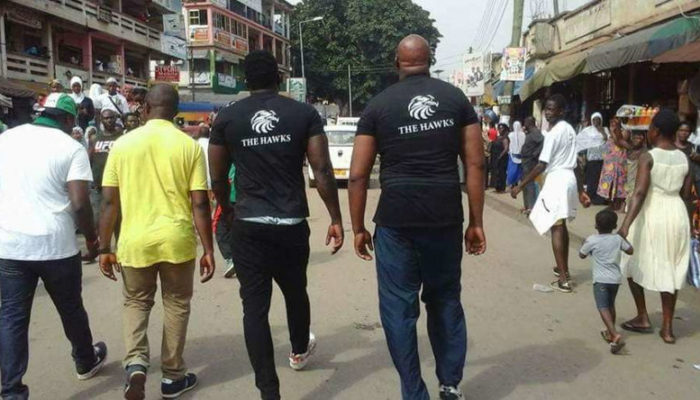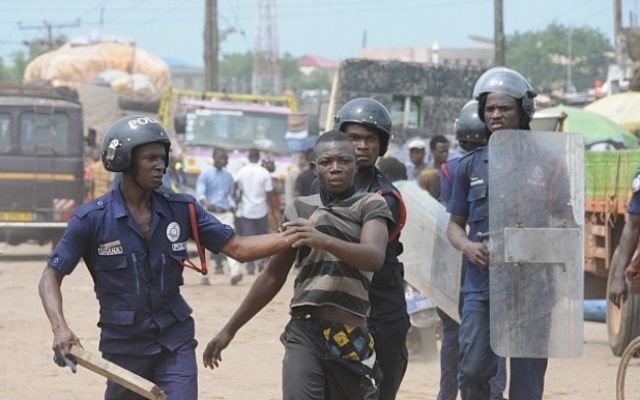A corruption scandal is in the news in Ghana again. Media reports suggest an elaborate scheme of cronyism in the procurement of private sector involvement in the country’s energy industry. This is only the latest of many allegations of serious corruption in the country.
Annual reports by the Auditor General and disclosures from undercover investigations provide evidence of widespread corruption across Ghanaian society. The latest Afrobarometer survey also showed that 33% of the Ghanaians surveyed reported paying bribes to public officials. This is lower than the rates for Nigeria (44%) and Liberia (53%), but much higher than Senegal (15%).
And according to the country’s Commission on Human Rights and Administrative Justice, Ghana loses $US3bn every year to corruption. Beyond economic costs, corruption erodes confidence in democratic institutions, undermines the rule of law and violates human rights.
It was in this context that our study sought to understand how young educated adults – described in our study as prospective elites – reacted to corrupt opportunities.
What constitutes corruption?
Corruption is a complex social problem. It takes different forms in different societies, and it changes over time. A widely-cited definition comes from Transparency International: corruption is “the abuse of entrusted power for private gain”. This is helpful, but I prefer the definition by the criminologist John Kleinig, who wrote that officials:
act corruptly when, in exercising or failing to exercise their authority, they act with the primary intention of furthering private or departmental/divisional advantage.
This definition makes the point that corruption includes both what people do and what they fail to do. The critical issue is a person’s motive. It also makes clear that corrupt officials need not benefit from the transaction: sometimes officials abuse their authority for the benefit of groups to which they belong. Examples would include a religious group, an ethnic group or a political party.
The definition also takes us beyond monetary gains to include other gains such as esteem, especially in cases of nepotism and cronyism.
More recently, I have become interested in what some describe as “delayed corruption”. Here officials exercise their authority with an eye on personal advantage that will accrue to them once they leave public office.
The why
We first sought to determine the type of corruption that the young adults were likely to engage in. We presented 530 with scenarios depicting various forms of corrupt opportunities, and asked what they would do in such cases.
In explaining why people resorted to corruption, we considered bribery and nepotism across three situations: policing; public procurement; and the abuse of power for the benefit of others rather than the young adults themselves. A number of important findings emerged.
We found that people were more inclined to engage in influence peddling – with and on behalf of friends and relatives – rather than to pay bribes directly. For example, nearly 50% indicated they would ask friends to use their positions to award them a government contract while only a third said they would pay a bribe for a similar contract.
This suggests that friendship and kinship networks, rather than direct monetary exchange, are important channels through which corrupt exchanges take place.
We also found that perceptions of being found out – in other words, risk factors – played a big role. This is consistent with research findings from elsewhere showing that corruption is more likely to happen in environments where there is weak monitoring and the risk of detection is low.
The higher the risk, the less likely that young, educated Ghanaians will get involved in corruption.
We also found that young adults who defined a successful life in terms of material possessions were consistently more inclined to engage in bribery and nepotism. They were willing to pay bribes or use friendship networks to secure public contracts, to influence police officers, and to make decisions that favoured others.
Finally, we found that a person’s attachments to the state and to kinship groups mattered a great deal for their decision to resort to corruption. A strong attachment to the state made corrupt conduct less likely; a strong attachment to kinship groups made it more likely.
What needs to be done
Anti-corruption efforts need to focus on improving the detection of corrupt transactions – whether these are bribery or nepotism and cronyism – because it is certainty of detection that deters criminal conduct. Research evidence also shows perceptions of certainty increase people’s willingness to report corruption to the authorities.
Three things can be considered.
First, the anti-corruption architecture could be redesigned to grant the police a pivotal role. The police have the capacity to build an extensive intelligence network across the country. They are present in every city and their intelligence networks can help detect efforts to hide wealth obtained through corruption. They also provide easy access for citizens to report corruption. But an anti-corruption role for the police requires improved training, better resources, and insulating them from partisan politics.
Second, invert the logic underpinning efforts to detect procurement corruption. Currently, it is presumed that procurement transactions are “clean” until evidence of corruption emerges. That needs to change to adopt the logic that underpins airport security screening: assume that every public procurement is corrupt until proven otherwise, and it should not proceed until it has gone through a transparent process of scrutiny. Proceedings of procurement boards, including reasons for decisions, should be video recorded and made public.
Third, periodic integrity testing of officials can heighten the risk of detection. This can be “targeted” at specific officials for whom complaints about corruption do not appear sufficient for criminal prosecution. An example is what the undercover journalism Anas Aremeyaw Anas has done so effectively. But integrity testing can also be “random” and aimed at potential offenders.
Anti-corruption interventions also need to be part of broader reforms to build the state’s legitimacy. Weak bonds with the state create a predatory relationship in which some citizens seek to exploit it for their individual and group interests.
This article was first published on The Conversation.




